
Phentermine is a prescription medication used for short-term weight loss management in individuals who are overweight or obese. It belongs to a class of drugs called sympathomimetic amines, which work as appetite suppressants by affecting the central nervous system. Phentermine is typically prescribed in conjunction with a reduced-calorie diet and exercise regimen and is intended for short-term use due to its potential for abuse and dependence.
How does phentermine impact blood pressure?
Phentermine is a medication used for short-term weight loss management in individuals with obesity or overweight. It belongs to a class of drugs called sympathomimetic amines, which work by stimulating the release of certain neurotransmitters in the brain, such as norepinephrine, dopamine, and serotonin. These neurotransmitters play a role in appetite control and energy regulation.
Phentermine can have effects on blood pressure due to its stimulant properties. Here’s how phentermine may impact blood pressure:
- Increased Heart Rate: Phentermine can stimulate the sympathetic nervous system, leading to an increase in heart rate (tachycardia). The increased heart rate can result in a temporary elevation in blood pressure.
- Vasoconstriction: Phentermine can cause blood vessels to constrict (vasoconstriction) due to its effects on the release of norepinephrine. This narrowing of blood vessels can also contribute to higher blood pressure.
- Individual Response: The impact of phentermine on blood pressure can vary among individuals. Some people may experience a significant increase in blood pressure, while others may have a more modest effect or none at all
Phentermine is a sympathomimetic amine, which means it acts as a stimulant on the central nervous system. Its primary mechanism of action is to increase the release of certain neurotransmitters in the brain, particularly norepinephrine. This stimulation has several effects on the body, including potential impacts on metabolism. Here’s how phentermine may affect metabolism:
- Increased Energy Expenditure: Phentermine can increase the release of norepinephrine, a neurotransmitter that plays a role in the “fight or flight” response. This activation of the sympathetic nervous system can lead to an increase in energy expenditure or calorie burning.
- Stimulation of the Central Nervous System: Phentermine stimulates the central nervous system, leading to increased alertness and energy. This can result in increased physical activity and may contribute to a higher calorie burn throughout the day.
- Appetite Suppression: Phentermine is known for its appetite-suppressing effects. By reducing feelings of hunger, individuals may naturally consume fewer calories, contributing to weight loss.
It’s important to note that while phentermine can have these effects, its primary role is as an adjunct to a comprehensive weight loss plan that includes lifestyle modifications, such as a reduced-calorie diet and increased physical activity. Phentermine is generally prescribed for short-term use (usually a few weeks to a few months) as part of a broader strategy to initiate weight loss in individuals with obesity or overweight.
Phentermine is available under various brand names. Some of the common brand names for phentermine include:
- Adipex-P: Adipex-P is one of the most well-known brand names for phentermine. It is a prescription medication used for short-term weight loss in conjunction with lifestyle modifications.
- Ionamin: Ionamin is another brand name for phentermine. It is available in a resin matrix, extended-release form, providing a longer duration of action compared to immediate-release formulations.
- Lomaira: Lomaira is a lower-dose form of phentermine hydrochloride that is available in tablet form. It is intended for short-term use as an adjunct to a reduced-calorie diet and increased physical activity.
How does phentermine aid weight loss?
Phentermine aids weight loss primarily through its appetite-suppressing effects and its impact on the central nervous system. It is a sympathomimetic amine, which means it mimics the actions of the sympathetic nervous system, commonly known as the “fight or flight” response. Here’s how phentermine works to help with weight loss:
- Appetite Suppression: Phentermine primarily acts on the hypothalamus, a region of the brain that regulates hunger. It stimulates the release of neurotransmitters, such as norepinephrine, that reduce feelings of hunger and increase feelings of fullness. By suppressing appetite, individuals taking phentermine may naturally consume fewer calories.
- Increased Energy Expenditure: Phentermine stimulates the release of norepinephrine, a neurotransmitter that plays a role in the body’s response to stress. This activation of the sympathetic nervous system increases heart rate and energy expenditure. The heightened energy levels may contribute to increased physical activity, further supporting weight loss efforts.
- Enhanced Fat Burning: The increased release of norepinephrine by phentermine can also stimulate the breakdown of stored fat for energy, potentially contributing to fat loss.
Is phentermine safe for use during pregnancy or breastfeeding?
Phentermine is generally not recommended for use during pregnancy or breastfeeding due to potential risks to the developing fetus or the nursing infant. The safety of phentermine during pregnancy and lactation has not been extensively studied, and there is limited information available.
Here are some considerations regarding the use of phentermine during pregnancy and breastfeeding:
- Pregnancy:
- Phentermine is classified as a pregnancy category X medication by the U.S. Food and Drug Administration (FDA), indicating that studies in animals or humans have shown fetal abnormalities or there is evidence of fetal risk.
- The use of phentermine during pregnancy may increase the risk of developmental abnormalities in the fetus.
- Breastfeeding:
- Phentermine is excreted into human milk, and its use during breastfeeding is generally not recommended.
- The potential for adverse effects on the nursing infant, such as changes in sleep patterns or irritability, is a concern.

What are the common side effects of phentermine?
Phentermine, like any medication, can have potential side effects. It’s important to note that not everyone will experience these side effects, and their severity can vary among individuals. Common side effects of phentermine may include:
- Insomnia: Phentermine is a stimulant that can lead to increased alertness and difficulty sleeping, especially if taken later in the day.
- Dry Mouth: Stimulants like phentermine can cause a reduction in saliva production, leading to a dry mouth sensation.
- Increased Heart Rate: Phentermine can stimulate the cardiovascular system, leading to an increase in heart rate (tachycardia).
- Elevated Blood Pressure: Phentermine’s stimulant effects can also lead to an increase in blood pressure, which is why regular monitoring is essential during treatment.
- Nervousness or Restlessness: Some individuals may experience feelings of nervousness, restlessness, or irritability.
- Headache: Headaches are a common side effect reported by some individuals taking phentermine.
- Gastrointestinal Issues: Phentermine may cause gastrointestinal symptoms such as constipation or diarrhea.
- Dizziness: Some individuals may experience dizziness, especially when standing up quickly.
- Changes in Libido: Phentermine’s effects on the central nervous system can lead to changes in libido (sexual desire).
- Blurred Vision: In some cases, individuals may experience blurred vision as a side effect.
Does phentermine increase heart rate?
Yes, one of the common side effects of phentermine is an increase in heart rate (tachycardia). Phentermine is a sympathomimetic amine, and it works by stimulating the release of neurotransmitters, such as norepinephrine, in the brain. These neurotransmitters activate the sympathetic nervous system, leading to various physiological responses, including an increase in heart rate.
The stimulation of the sympathetic nervous system by phentermine can result in the following cardiovascular effects:
- Increased Heart Rate: Phentermine can lead to an elevated heart rate, which is the number of beats per minute. This is a common and expected side effect due to the medication’s stimulant properties.
- Elevated Blood Pressure: Along with an increased heart rate, phentermine may also cause a temporary rise in blood pressure. Monitoring blood pressure is important during treatment with phentermine, especially in individuals with pre-existing hypertension or cardiovascular conditions.
What should I discuss with my doctor before starting phentermine?
Before starting phentermine or any weight loss medication, it’s crucial to have a thorough discussion with your healthcare provider to ensure that the medication is appropriate for your individual health situation. Here are some important topics to discuss with your doctor before starting phentermine:
- Medical History:
- Provide a detailed medical history, including any pre-existing conditions such as cardiovascular disease, high blood pressure, diabetes, thyroid disorders, or mental health conditions.
- Inform your doctor about any previous surgeries, allergies, or adverse reactions to medications.
- Current Medications:
- Provide a list of all current medications, including prescription medications, over-the-counter drugs, vitamins, and supplements. Certain medications may interact with phentermine.
- Pregnancy and Breastfeeding:
- Inform your healthcare provider if you are pregnant, planning to become pregnant, or breastfeeding. Phentermine is generally not recommended during pregnancy or breastfeeding.
- Weight Loss Goals:
- Discuss your weight loss goals and expectations. Your doctor can help set realistic and healthy weight loss targets.
- Lifestyle and Behavioral Factors:
- Discuss your current lifestyle, including dietary habits, physical activity level, and any challenges you face in making lifestyle changes.
- Consider discussing any emotional or behavioral factors that may contribute to your weight management.
- Cardiovascular Health:
- If you have a history of cardiovascular conditions, such as heart disease, hypertension, or arrhythmias, your doctor will assess the potential risks and benefits of using phentermine in your case.
- Potential Side Effects:
- Understand the potential side effects of phentermine, including increased heart rate, elevated blood pressure, insomnia, and dry mouth. Discuss how these side effects might impact you and whether they are manageable.
Is phentermine safe for long-term use?
Phentermine is generally not recommended for long-term use. It is typically prescribed for short-term management of obesity or overweight as part of a comprehensive weight loss plan that includes lifestyle modifications. The usual duration of phentermine treatment is a few weeks to a few months.
Several factors contribute to the recommendation for short-term use:
- Tolerance: With prolonged use, individuals may develop tolerance to the appetite-suppressing effects of phentermine, diminishing its effectiveness over time.
- Risk of Dependence: Phentermine is a sympathomimetic amine, and long-term use may carry a risk of dependence or addiction. Therefore, it is generally avoided for extended periods to minimize this risk.
- Cardiovascular Effects: Phentermine has stimulant properties that can lead to increases in heart rate and blood pressure. Prolonged exposure to these cardiovascular effects may pose risks, especially for individuals with pre-existing cardiovascular conditions.
- Limited Efficacy: The effectiveness of phentermine tends to diminish over time, and its use is most beneficial during the initial stages of a weight loss program.
- Guidelines and Safety Concerns: Regulatory guidelines and safety concerns limit the recommended duration of phentermine use. The U.S. Food and Drug Administration (FDA) and other health authorities generally advise against long-term use.

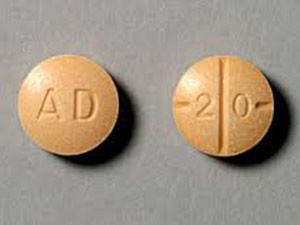









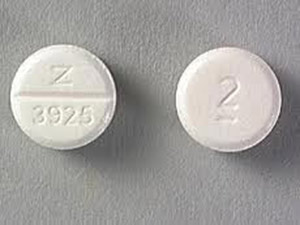




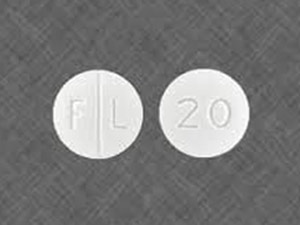



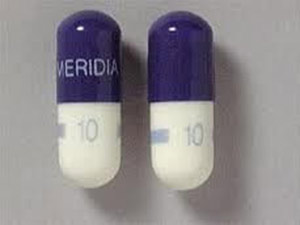


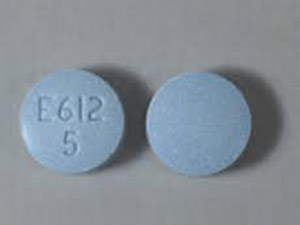

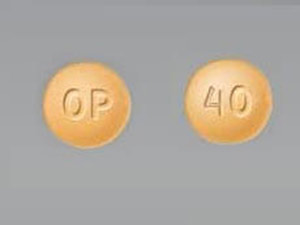




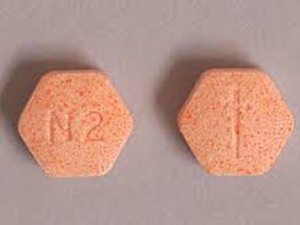







Leave a Reply